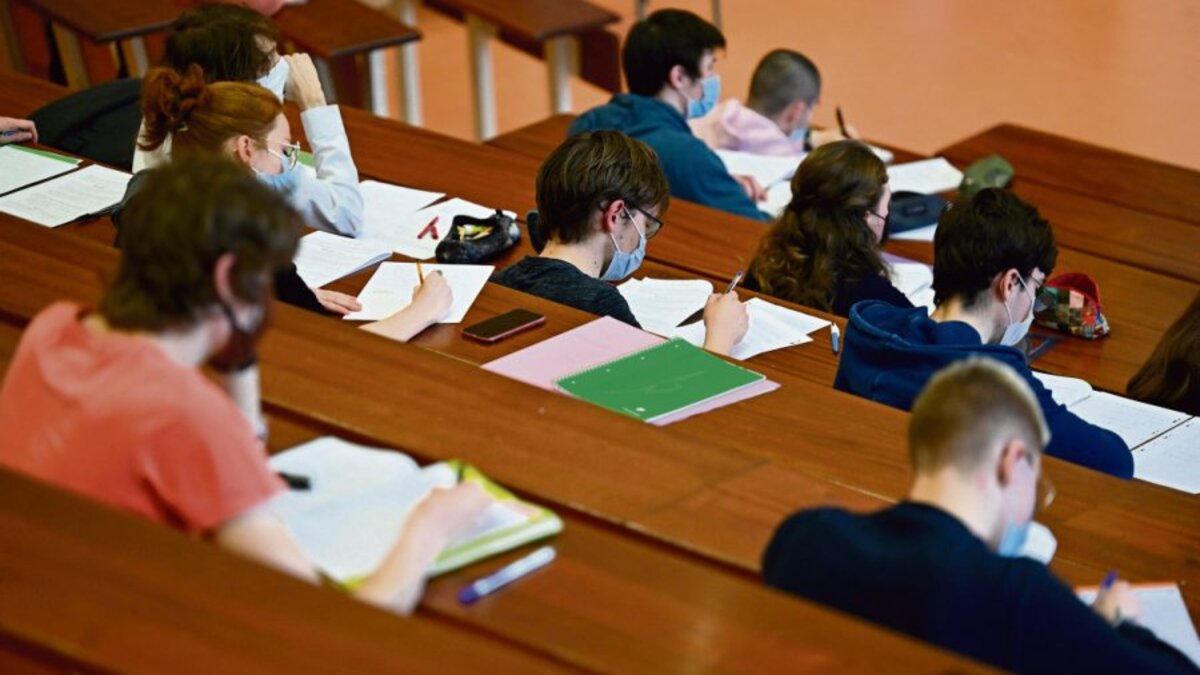
Agrandissement : Illustration 1

Article source: "Frédérique Vidal veut un Parcoursup des masters", Olivier Chartrain, l'Humanité, 15/12/2021.
If you hated Parcoursup, (France’s new undergraduate application platform, ed.), then you’re going to despise TrouverMonMaster (FindMyMaster’s). The French government is rushing through the introduction of a system of selection for entering the first year of a Master’s degree. This system is intended to be up and running by February 2022, and seems to be identical to Parcoursup, which has been providing automated selection of high-school-leavers since 2018, replicating both the operating model and the defects of the undergraduate platform. It was only during a so-called “consultative meeting” on 25 November that higher education unions and student organisations were informed of this decision, which was presented as a done deal.
The website TrouverMonMaster.gouv.fr, currently used only as a source of information about Master’s degrees, would become an application platform with a system of choices, allowing for the selection and admission (or refusal) of candidates, on an extremely tight schedule. Institutions would be required to provide the admission criteria for each Master’s degree before the end of the calendar year. The platform is supposed to be operational by February 2022, in order to process applications in time for the start of the new academic year in September. This schedule is “impossible” and “incompatible with the lack of resources and the academic calendar,” argue the Snesup-FSU, France’s biggest higher education union. “Students are not even aware of what is about to happen!” says Jeanne Péchon, General Secretary of the UEC (the French Communist student union), who organised a demonstration outside the French ministry of higher education on 14 December.
What Price "Acceleration"?
The motive behind the authorities’ plan to put this obstacle in the way of entry into a Master’s degree is the same one that led to the creation of Parcoursup: namely, that the current system, in which students apply directly to individual higher education institutions, leaves too many people out in the cold. How many students are we talking about? In the absence of any official figures, students’ unions estimate that between 4000 and 10,000 applicants are left without a place every year. The right to continuing education, which has been enshrined in French law since 2017, does allow students in this situation to appeal to the regional education authorities, who are required to provide them with alternative offers, as part of a clearing process. But in the rare cases where these offers are actually suitable, the applicants tend to join their courses very late in the academic year, in October.
This is why there is a need for an accelerated system, to make sure “that there is as little delay as possible between initial offers and the clearing process,” Frédérique Vidal, the French higher education minister, explained last July. Going by the small amount of information currently available, Mélanie Luce, the head of Unef (the French national student union), says, “unlike now, there would be a limit on the number of applications students could make, and it would no longer be possible to rank them. Just like in Parcoursup, there would be different entry requirements for this or that Master’s course, the applications would be put through algorithms, with no transparency,” and on top of that, “candidates would only be able to keep one offer at a time,” without the ability to choose which one.
"Dehumanisation"
She denounces the “dehumanisation” of submitting students’ applications to a “purely numerical accounting process”: “For instance, it is much more difficult for a working student to obtain a degree with an average grade of 11 or 12 out of 20. But this is not taken into account. This system will just exacerbate social inequalities.” Jeanne Péchon, whose organisation has launched a petition against the selection process for Master’s courses, reminds us that “the people who will be subjected to this system are the same ones who had to deal with all the teething problems of Parcoursup, and have just spent two years in lockdown.”
Meanwhile, the higher education unions are asking for a moratorium on TrouverMonMaster until 2023, and several French youth organisations and political movements (UEC, Unef, l’Alternative, Solidaires étudiants, la Voix lycéenne, Jeunes insoumis, Jeunes écologistes...) are refusing to accept any kind of selection process. They are demanding a substantial boost in subsidies to meet funding shortfalls in higher education, to make it possible to increase the numbers of places available, in order to accommodate the influx of students, without causing any deterioration of the educational conditions or the value of the diploma, i.e. by making sure there are enough teaching jobs and educational facilities. It should not be forgotten that, while the number of students enrolled at undergraduate level in France increased by 15% between 2017 and 2020, the funds allocated to postgraduate education decreased by 2% in the budget for 2022.
Translated by Dorian Widmer and Fanny Juchtzer
Edited by Sam Trainor



